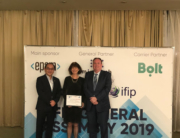IFIP TC12.6 and TC12.11, in collaboration with the School of Computer Science, University of Galway, organised the “AI for Sustainability” workshop at ECAI 2023 in Krakow, Poland from 30 September to 1 October 2023.
Motivation: Artificial Intelligence generates a twofold effect: it produces various kinds of waste and has the potential to help addressing the sustainability goals, produce smarter and greener hardware, software and applications. Sustainability requires solving complex problems, often with hybrid AI approaches. The objective of this multidisciplinary session was to gather both researchers and practitioners to discuss methodological, technical, organisational and environmental aspects of AI used for various facets of sustainability.
Three invited talks addressed the timely topics related to explainable AI, detecting multimedia fakes and the growing role of multi-agent systems.
The first talk, entitled: “In Search of Model-Driven eXplainable Artificial Intelligence”, was presented by Antoni Ligęza, Professor AGH – University of Science and Technology in Kraków, Poland – a common work with Dominik Sepioło at the same university. The main focus was on the discovery of open, white-box AI models explaining the observed dependencies in datasets in a way closed to human understanding.

Prof Antoni Ligeza
Prof Mieczyslaw Lech Owoc, of the University of Economics, Wroclaw, Poland, presented a second talk entitled: “Impact of fakes on sustainable development actions – what methods for trusted knowledge?”. The emphasis here was on the detection of fakes, specially related to SDG and the impact of fake news on various actions typical of sustainable development in many areas. Such detection requires using some specific knowledge-based methods for completeness, adequacy, coherence and credibility checking.
On the second day, Professor Ann Nowé from Vrije Universiteit Brussel, Belgium spoke on the importance of Multi-agent systems.
This workshop brought together over 50 participants. The full program can be found here.





